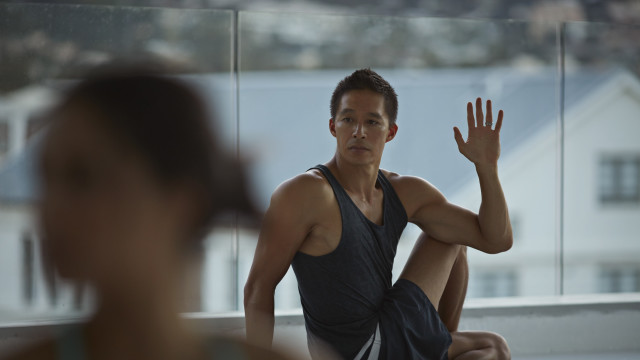Find Serenity in Deep Relaxation

When was the last time you truly relaxed? Took some time off work, delineated yourself from your chores and to-do lists, and recharged and rejuvenated yourself. We often confuse being relaxed with slumping on the sofa watching our favorite show or maybe putting aside our devices. Such times may seem like a welcome break, but do they really infuse you with serenity?
As author and burnout expert Allan Ting says in my Living with Sunny podcast, we need to take time out from powering through the day to prevent burnout. Ting has put in years of research and come up with a simple formula to prevent stress build up — ‘A.I.R’ which stands for aspiration, inspiration, and rejuvenation. “The analogy is your life is a sprint or a marathon. When you are fully aspirated and charging at 100 or 110 per cent you will certainly feel depleted. If you ask any professional athlete one of the worse mistakes is overtraining, you need a rest period. Rejuvenation is essential. Setting expectations and taking time-offs are key elements to having work-life integration”
So what is deep relaxation?
To rejuvenate ourselves, we need to cut off from the noise of daily life and find moments of deep relaxation. It’s a technique in which you focus exclusively on your breathing to feel nourished mentally and physically; it allows you to feel a drop in muscle stiffness and blood pressure. Research has shown the benefits of deep relaxation, including this recent study, which says, “Multiple forms of relaxation training (e.g., progressive muscle relaxation, meditation, breathing exercises, visualization, and autogenics) can help individuals reduce stress, enhance relaxation states, and improve overall well-being.” The evidence is undeniable, deep relaxation can truly help in healing your body.
World-renowned spiritual teacher and peace activist Thich Nhat Hanh also emphasized on the need for deep relaxation. In his book, Buddha Mind, Buddha Body, Walking Toward Enlightenment, the late monk wrote, “Deep Relaxation is a practice of resting… It is a practice of totally letting go and returning to take care of our body and mind. We use the breath as our anchor to help us. Our breath is also like a wave, gently rocking us into a deep peace. In this state of rest, our body and mind can release their burdens. A lot of healing happens just by letting go and sinking into this state of total relaxation.”
In my journey as a seeker of wellbeing, I’ve discovered the power of mindfulness meditation in the middle of a busy or stressful day to help me relax. Here are ways in which you can relax and recenter:
Know when to relax
Constant worrying, inability to focus, feeling anxious may be the obvious signs that you’re stressed, but what about when you fail to identify that you’re under duress? There are other tell-tale signs of stress and burnout like losing control, snapping at people, being rude or curt, and losing patience with family members or colleagues. It is also important to also address chronic stress, which may manifest as teeth grinding, low immunity, unexplainable body aches, headaches, bad dreams, or lack of sleep.
Whenever you notice any of these signs, slow down. Make time in your daily routine to practise deep relaxation by focusing on your breathing for an instant infusion of calm. Go for nature walks and switch off your mobile. If you’re suffering from chronic stress, chalk out a wellbeing plan to address it.
It is all about your breath
Breathwork or the practice of intentionally changing your regular breathing pattern is the cornerstone of deep relaxation. True relaxation comes from a determined, intentional use of self-control using breath to lift your energy. Take deep belly breaths or “abdominal breathing” instantly helps you relax. Inhaling and exhaling at a steady, slow pace helps in winding down by slowing your heart rate.
Tune in to your favourite music
Music can enhance any immersive meditation experience. The sound of birds, gentle wind, the mild gurgling of a stream, drumbeat alongside flute and strings, the relaxing chimes from a monastery etc. can induce a state of deep relaxation. At Roundglass Music, you can tune into soundscapes that paint vivid imagery to help you transcend and focus on being relaxed.
Get creative
You can find your own way to get into a zone of deep relaxation. Any activity that totally absorbs you for a while — it could include doodling, knitting, or filling in a coloring book. Finding a suitable meditation style to help you maximise your relaxation time is also beneficial. At Roundglass Meditation, you will find many options — mini, guided, mantra, and moon meditations or a yoga nidra class — to help you unwind.
Go on, set aside 10-15 minutes in the middle of your workday to unplug and give yourself a break. Your body and mind will thank you. Deeply.





